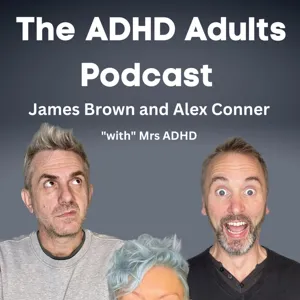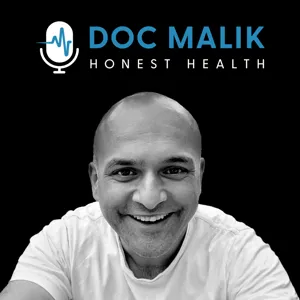Podcast Summary
Underrepresented populations in gifted education and unique experiences: Companies cater to diverse needs, from underrepresented students in education to travelers seeking unique river cruises, all-natural supplement consumers, and fishermen requiring sun protection.
There are underrepresented populations in gifted education, including black students, Latinx students, and low-income students. These students often lack the resources and teachers with the appropriate training to identify and support their gifted potential. Meanwhile, in a different context, Avalon Waterways offers a unique river cruising experience with smaller ships and fewer people, allowing travelers to fully enjoy the picturesque shores of Europe. Symbionica provides all-natural supplements free of seed oils, fillers, and toxins, ensuring consumers feel the difference. Lastly, Columbia PFG's Solar Stream Elite hoodie offers great sun protection while remaining breathable for fishermen. Overall, these companies cater to various needs, from travel and education to health and fishing, ensuring customers have the best possible experience.
Striving for Equity and Excellence in Gifted Education: Ensuring underrepresented students, especially African American students in low socioeconomic areas, have access to gifted programs is crucial for equity and excellence in education. Self-advocacy and listening to students are essential to address the equity issue.
Equity and excellence in education can coexist, and it's crucial to ensure underrepresented students, particularly African American students in low socioeconomic areas, have access to gifted programs. Joy and Deb, the speakers in this discussion, argue that it's unfair to eliminate gifted education in pursuit of equity, as these students are just as deserving of such opportunities. They also emphasize the importance of self-advocacy and listening to students to address the equity issue. Their unique approach, as outlined in their book, offers a potential solution to this complex issue, demonstrating that we can strive for both equity and excellence in education.
Expanding the definition of giftedness and identification processes: Limitations of high-scoring, high-achieving definition of giftedness, importance of early childhood education, observation and interview for comprehensive identification, and recognizing various forms of giftedness beyond IQ and achievement tests.
We need to broaden the definition of giftedness and expand identification processes beyond just achievement test scores and IQ. The current stereotypical vision of giftedness as high-achieving, high-scoring students limits recognition for those who present gifted characteristics in nontraditional ways. Test preparation can help students prepare for testing situations, but it cannot substantially increase IQ scores. Early childhood education and experiences are crucial for demonstrating gifts, and using only ability and achievement tests for identification at a young age can exclude many students. It's essential to recognize that not every child is gifted, but there are other ways students can demonstrate their giftedness, such as verbal abilities or unique talents. Schools should take the time to observe and interview students to identify those who might not be detected through traditional testing methods.
Recognizing Giftedness in Diverse Populations: Invest time and resources into training teachers and engaging parents to broaden perception of giftedness, recognizing diverse traits and ensuring no child is overlooked.
Identifying and understanding giftedness in children goes beyond traditional screening methods and requires a more nuanced approach. Teachers and parents play crucial roles in recognizing gifted traits in diverse populations and across socio-economic backgrounds. These traits may not always be apparent without proper understanding and sensitivity. It's essential to broaden our perception of what giftedness looks like and invest time and resources into training teachers and engaging parents. Not every child is gifted, but many can demonstrate exceptional abilities, and giftedness can evolve throughout one's life. The educational system should adapt to nurture and better understand these unique talents, ensuring no child is overlooked.
Supporting Gifted Students from Disadvantaged Backgrounds: Teachers must recognize and address the unique needs of gifted students from disadvantaged backgrounds, understanding their circumstances and providing appropriate challenges to foster essential skills like resilience and grit. Awareness of intersectionality and teacher training are crucial to finding their potential in challenging environments.
Identifying and addressing the needs of students who exhibit gifted potential, particularly those from disadvantaged backgrounds, is crucial for their academic and personal growth. Teachers play a vital role in recognizing these students as whole individuals, understanding their unique circumstances, and providing appropriate challenges to help them develop essential skills like resilience and grit. However, finding their potential in challenging environments can be difficult, making teacher training and awareness of intersectionality essential. By acknowledging the complexities of students' lives, including their family, community, and personal experiences, teachers can create inclusive learning environments that foster growth for all students.
Understanding students' diverse backgrounds and experiences: Effective teacher training requires acknowledging students' unique identities and societal perceptions to cater to their social-emotional and cognitive needs. Self-advocacy is essential for underrepresented gifted kids to express their needs in an educational system that may overlook their talents.
Understanding the complexities of students' backgrounds and experiences is crucial for effective teacher training. Students come from various worlds, carrying unique identities and societal perceptions, which intersect and impact their learning. Teachers need to be equipped with knowledge about diverse populations to cater to their students' social-emotional and cognitive needs. The educational system often focuses on students' limitations instead of their abilities, particularly for underrepresented gifted kids. Self-advocacy is a vital skill for these students to express their needs and wants, especially in an educational system that may not recognize their unique talents. Self-advocacy is a dynamic process that requires continuous development and should not be overlooked due to other concerns.
Culturally responsive self-advocacy for high potential students: Create inclusive environments that address unique needs of high potential students from underrepresented backgrounds, avoiding negative self-advocacy methods and bullying, to foster positive academic and life outcomes.
Self-advocacy for high potential students, particularly those from underrepresented backgrounds, requires a dynamic, culturally responsive, and inclusive approach. This approach addresses the unique intellectual, academic, psychosocial, and cultural needs of these students without damaging their self-esteem or that of others. Sadly, inappropriate self-advocacy methods can lead to negative outcomes. It's essential to create opportunities for positive academic and life outcomes, which have previously been limited due to stereotyping, systemic biases, and restricted access to resources. Cultural differences can play a role in academic success, but it's crucial not to overlook the potential impact of bullying and stereotyping based on race or ethnicity. A prime example is a high-achieving black student who faced bullying both for being too "black" in the predominantly white specialized school and for "acting white" among his predominantly black peers. The student's resilience and support from family enabled him to succeed and choose a historically black college and university (HBCU) over a predominantly white institution.
HBCUs offer a unique sense of belonging for black students: HBCUs provide essential support for black students, helping them overcome challenges and build self-advocacy skills, but families, communities, and educators all play crucial roles in their success.
HBCUs (Historically Black Colleges and Universities) provide a unique and essential experience for many black students, enabling them to feel a sense of belonging and acceptance that they may not have experienced in their previous educational environments. This can be particularly important for students who have faced bullying, taunting, or stereotyping based on their race or ethnicity. However, not every student is able to overcome these challenges without support. Families and communities play a crucial role in helping students navigate these experiences and build the self-advocacy skills they need to succeed. Unfortunately, some students may still encounter teachers who don't understand their experiences or the unique challenges they face as black students in predominantly white educational environments. It's essential that educators make an effort to understand and normalize these experiences, so they can effectively support and empower all students, regardless of their backgrounds.
Empowering Diverse Students to Self-Advocate: Recognize cultural differences, provide equal opportunities, address systemic issues, identify strengths, accept individuality, understand rights, and offer resources to help diverse students self-advocate and succeed in education.
Educators need to understand the unique needs of diverse student populations to effectively help them develop self-advocacy skills. This includes recognizing cultural differences and biases, providing equal opportunities, and addressing systemic issues. Additionally, educators should help students identify their strengths and weaknesses, accept their individuality, and understand their right to specialized education. By addressing these barriers and providing appropriate resources, educators can empower students to advocate for themselves and succeed in their education.
Empowering Gifted Students to Self-Advocate: Educators play a crucial role in creating a supportive environment where gifted students feel empowered to self-advocate, build strong relationships, understand unique needs, and provide necessary resources and strategies.
Gifted students have the responsibility to advocate for their educational needs, but they also need the support and empowerment from educators to do so effectively. Self-advocacy is crucial for any student who feels overlooked or undervalued in the education system, and it can be particularly challenging for gifted students who may not fit neatly into traditional educational structures. The development of self-advocacy skills often stems from a sense of injustice and a strong sense of determination. Educators play a vital role in creating a supportive environment where students feel empowered to speak up and make their own educational decisions. This requires building strong relationships with students, understanding their unique needs, and providing them with the resources and strategies they need to succeed. By fostering a culture of self-advocacy, educators can help ensure that all students, regardless of their background or abilities, receive the education they deserve.
Empowering Students to Advocate for Themselves: Supporting students to speak up empowers them to effect change and create a more equitable world. Encouraging student voices can lead to sustainable solutions.
Empowering students to advocate for themselves is crucial in creating a world where all children feel confident and equipped to effect change. The speaker, who was once a student advocate herself, emphasized the importance of adults supporting and enabling students to speak up, as they often have valuable insights and experiences to contribute. She shared stories of inspiring students who had successfully advocated for themselves and others, and expressed the belief that building a culture where students are encouraged to use their voices can lead to significant, sustainable change in addressing equity issues. The speaker's passion for this cause and her collaboration with Deb Douglas on this project reflect the importance of amplifying student voices and agency in creating positive change.
Empowering children to pursue their dreams: Personal growth, self-care, and empowering the next generation are crucial. Accessible mental health support and affordable clothing can aid in this journey.
Dreams should not be deferred, as they can lead to stagnation or explosion. Instead, it's essential to empower children to change the system and pursue their dreams. The speaker expressed gratitude for the efforts being made to support this cause, especially during challenging times for gift education. The discussion also touched upon the importance of mental health support and self-improvement. BetterHelp was highlighted as an accessible and affordable option for online therapy. Additionally, the speaker emphasized the importance of finding clothing that fits well and flatters different body types, with JCPenney being a go-to destination for stylish and comfortable options. Overall, the conversation underscored the significance of personal growth, self-care, and empowering the next generation.






